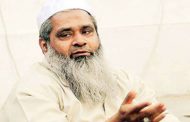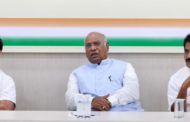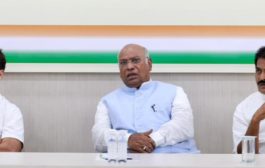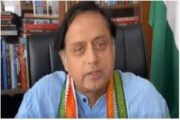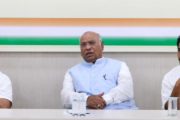National Register of Citizens cannot be unilaterally foisted on a state. Shah’s threat therefore fell flat and his claim that BJP will win 23 of the 42 LS seats sounds increasingly like a tired joke

The Trinamool Congress announced its list of 42 candidates from West Bengal for the Lok Sabha elections on March 12. It was a mix of sitting MPs and new nominees. Party chief and state Chief Minister Mamata Banerjee came in for some criticism for handing out nominations to a couple of glamorous actresses from the Tollygunge film industry, but the process was otherwise smooth.
The only controversy was over the Barrackpore nomination. Sitting MP Dinesh Trivedi was re-nominated, though the MLA from Bhatpara, one of the assembly segments of the parliamentary constituency, and a local strongman had wanted the nomination. Arjun Singh, the MLA, left the party to join the Bharatiya Janata Party (BJP) on March 14 and got his new party’s nomination.
The same can hardly be said for the opposition parties in the state. The BJP announced its list in agonizing instalments, beginning March 22. Four days on, it still had not managed to publish its full list. At the time of writing, there was still a lack of clarity on one seat. The reason for the party taking such a lot of time to publish its full list was simple. It just could not find 42 credible candidates from its own stables and was thus reduced to shop around amongst other parties to put together a list that resembled, even if only in passing, a roster of names for a Lok Sabha election.
The fact that it had to shop around has triggered a wave of resentment within the party. Many BJP members are far from amused that their years of service has been overlooked, while interlopers have been welcomed with open arms and rewarded with tickets. On the first day itself, when the names of 28 candidates were announced, there was a ‘revolt’ in Cooch Behar. Dissatisfaction was also reported from Malda district, which has two Lok Sabha constituencies.
Given the fact that the BJP has a weak organization base and an extremely shallow pool of leaders with the kind of track record and public recognition to contest for parliamentary elections, party chief Amit Shah’s repeated claim that the BJP will win 23 of 42 seats is a very tired joke. The BJP, it is true, has emerged as the principal opponent to the Trinamool Congress, displacing the Left Front.
Even though Shah and the ‘leaders’ of the party in the state, a bunch of no-hopers if ever there was one, proudly proclaim their new status and make absurd claims about the number of seats they are going to win, ranging from Shah’s 23 to 27 seats claimed by some state leaders, everyone knows that the BJP’s ‘rise’ means practically nothing, because it is so distant in the rear-view mirror that being second has no relevance.
And that is why BJP leaders have been making desperate attempts to communalize politics in Bengal. Having failed to make much of an impact, their efforts have taken on an increasingly shrill note, exposing the party once more for what it is: a sectarian, exclusivist party that is always prepared to promote violence and disorder to get its hands on the levers of power.
That is why Shah upped the communal rhetoric at a rally in north Bengal’s Alipurduar on Friday, re-opening the idea of the National Register of Citizens (NRC), so long shelved because of concerns about its impact in the North-East. What Shah said was significant: ‘Narendra Modi government will assume power again and we will bring NRC to Bengal. We will pick out each of the infiltrators and drive them out. The Hindu and Buddhist refugees need not leave the country. The Citizenship Amendment Bill is our commitment.’
There was more incendiary communal rhetoric, with, for instance, the fabricated accusation that people in Bengal have to take permission to hold the Durga and Saraswati puja’s.
A number of points need to be made here. First, the sheen was taken off Shah’s fulminations by the fact that only around 25,000 people turned up for the rally at a venue that could comfortably accommodate 100,000. In other words, the BJP’s strategy of communal polarization is not working in Bengal. Second, the party will be lucky if it wins three seats in Bengal; it is almost certain to lose the two it holds in the current Lok Sabha. Third, the NRC exercise cannot unilaterally be foisted on the state.
Moreover, the assumption that Modi will return to power is a bit premature to say the least, because there is every indication that the BJP will witness a massive erosion in its Lok Sabha numbers. Finally, the blatant anti-minority rhetoric of the BJP has passed its sell-by date, not least because of the massive failure of the BJP government at the Centre to deliver on its overblown promises. Shah looks set for a spell of involuntary retirement.
source: NH



